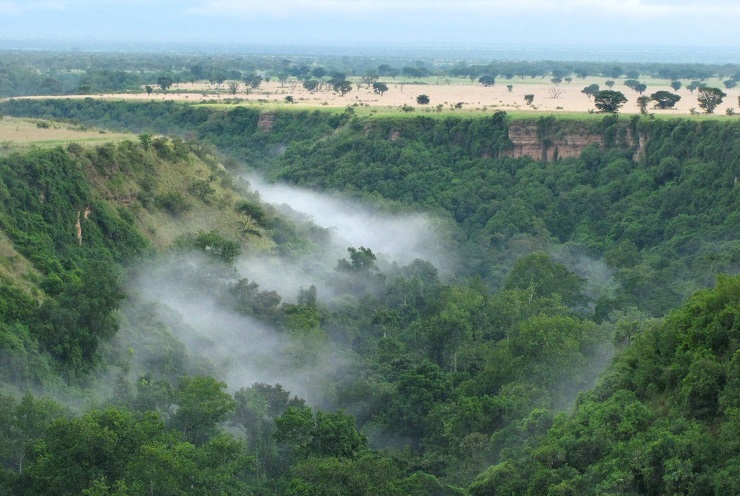Great Rift Valley – Africa’s Geological Wonder.

Geological Marvels
Uganda’s segment of the Great Rift Valley is characterized by steep escarpments, volcanic cones, and deep valleys. Volcanic activity over millions of years created numerous explosion craters, some of which are now filled with sparkling crater lakes such as Lake Katwe, Lake Bunyonyi, and Lake George. These lakes not only provide breathtaking scenery but also sustain communities and wildlife, making the valley a hub of both ecological and cultural significance.
The valley’s tectonic origins continue to shape the landscape, creating fertile soils that support agriculture and verdant vegetation. Hikers, nature lovers, and photographers find endless inspiration in the contrasts of rugged cliffs, gentle slopes, and water bodies reflecting the sky above.
Lakes, Wildlife, and Biodiversity
The Great Rift Valley is a haven for wildlife. Its lakes, wetlands, and forests sustain hippos, crocodiles, elephants, buffaloes, and a wide variety of antelopes. Birdlife is abundant, with over 600 species recorded in different parts of the valley, including flamingos, kingfishers, fish eagles, and migratory waterbirds.
Crater lakes and rivers create ideal habitats for aquatic species, while the surrounding savannahs and woodlands host large mammals. Visitors can enjoy game drives, boat safaris, and birdwatching excursions, each offering unique perspectives on this vibrant ecosystem.

Cultural and Community Experiences
The Great Rift Valley is not just a natural wonder — it is home to diverse communities that have lived harmoniously with the land for centuries. Travelers can engage with local cultures, learn about traditional farming practices, salt extraction in lakes such as Lake Katwe, and participate in community tourism initiatives. These experiences offer insight into how humans have adapted to the valley’s unique landscapes while preserving its natural resources.
Best Time to Visit
The Great Rift Valley is accessible year-round, but the dry seasons — from June to September and December to February — offer the best conditions for travel, hiking, and wildlife viewing. Wet seasons bring lush greenery, dramatic skies, and fuller lakes, making it ideal for photographers, though some roads and trails may become slippery.
Scenic Highlights
Explore the Great Rift Valley with African Wild Trekkers
At African Wild Trekkers, we craft personalized tours through the Great Rift Valley, combining wildlife safaris, cultural experiences, hiking adventures, and scenic viewpoints. Our expert guides ensure travelers gain deep insight into the valley’s geology, ecology, and communities while enjoying safe, immersive experiences.
Whether you wish to explore crater lakes, hike volcanic peaks, or observe wildlife along rivers and wetlands, the Great Rift Valley promises a safari unlike any other.
Book Your Adventure
🌍 Website: www.africanwildtrekkers.com
📧 Email: info@africanwildtrekkers.com
Discover the Great Rift Valley with African Wild Trekkers, where every vista is a story, every lake a mirror to the sky, and every journey a connection to Africa’s natural splendor.